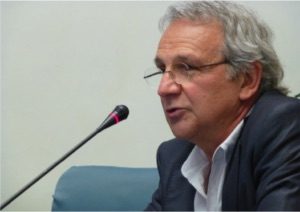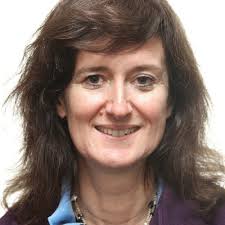It is not enough for public health professionals and those fighting for the right to health to help contain COVID-19 epidemic and respond to the needs of those affected by the virus. It is equally essential, in fact, to analyse how the pandemic plunges its roots in a global political and economic system characterized by inequality, disease and poverty, thus identifying the opportunities that the crisis presents to change it for the better. This need for transparency and collaboration requires us to answer a fundamental question: what is COVID-19 revealing to us?
This way of re-contextualizing the pandemic is very important because the solution to COVID-19 will not emerge from a laboratory, but from the vision of how we protect people in our society

By Angelo Stefanini* MD, MPH
Retired Faculty at University of Bologna, Italy
WHAT IS COVID-19 REVEALING TO US?
"The tradition of the oppressed teaches us that the 'state of emergency' in which we live is not the exception but the rule."
Walter Benjamin
We have sunk into a tragedy whose numbers can only give us arid accounting, certainly at fault. To define it, it is not enough to count the deaths or infected cases. As “not everything that can be counted counts and not everything that counts can be counted” (attributed to Albert Einstein), the numbers mask an unbearable amount of pain, disease and suffering that cannot be measured with the quantitative indicators available to us. For this it is necessary to probe deeply the paradoxes that this historical moment presents to us.
To this end, it is not enough for public health professionals and those fighting for the right to health to help contain the epidemic and respond to the needs of those affected by the virus. It is equally essential, in fact, to analyse how the pandemic plunges its roots in a global political and economic system characterized by inequality, disease and poverty, thus identifying the opportunities that the crisis presents to change it for the better.
An obstacle to this type of analysis, in my opinion, is represented by the military language that the speech on the pandemic introduces using military metaphors that describe the epidemic crisis as “a war that must be won”, “fighting in the trenches against the virus”, honouring “the doctors who fell at the front”. Uncritically accepting the lexicon of the “war on the virus”, on the one hand makes you lose sight of the overall picture by hiding its complexity, on the other hand it entails the risk of militarizing society, plastering it up, and thus ending up starting over as before.
In reality the issue is not whether winning or losing a war but about renegotiating our relationship with a disturbing and still largely unknown host known as SARS-CoV-2 virus. To this end, it is necessary to interpret the current crisis as a political, social and cultural challenge as well as a health one, in a climate of collaboration and mutual protection to be consolidated, with choices that are difficult to share with citizens who have the right to know and to be protected and cared for adequately.
This need for transparency and collaboration requires us to answer a fundamental question: what is COVID-19 revealing to us?
WHAT IS COVID-19 REVEALING TO US?
1 – It is revealing to us the total unpreparedness of the regional health “system”. It is not just a matter of individual oversights or incompetence in the face of an event that still continues to elude us in its complexity, but of a “systemic error”, the result of decades of dismantling the public service and which reached its apotheosis in Lombardy with the “Maroni reform” (LR 23/2015).
The effects of chronic de-financing of the public service, of hospital-centrism, of the absence of territorial medicine and general practitioners, of the introduction of corporate privatization logic in the health sector are manifested throughout the country. In short, we are experiencing first-hand the importance of public health, primary care, community participation, the role of the state.
2 – It is revealing to us how our society is profoundly fragile, of a fragility that the philosopher Luigi Alici describes as “a constitutive and not just an occasional condition of humanity”. At a time when we were convinced that frailty was only the marginal and episodic dysfunction of the unfortunate few in a global context dominated by power and efficiency, we are realizing that it is not only the individual who can get sick but also the whole.
As Pope Francis said, “We thought we would always remain healthy in a sick world.” It is not true that fragility is an accidental and transitory state that science will eventually be able to bring under control. Fragility is an essential constitution of each of us and of the world we inhabit.
3 – It is revealing to us that the body is a bio-political reality. According to the French philosopher Michel Foucault (1926-1984), with the birth of capitalism in the eighteenth century, the body was understood as a instrument of economic production, of workforce, thus becoming an object of significant political interest. Medicine and public health were legitimized as tools of social control so that people were fit for work, thus transforming health from a right to be guaranteed into a tool to protect the economy. Health as a political problem, therefore, which requires political control.
Similarly, the medical doctor and academic Giulio A. Maccacaro (1924-1977) stated that “medicine, like science, is a mode of power”, in the sense that, within the social clash between capital and labour, ” medicine is entrusted with the task of resolving, within scientific rationality, this contradiction of the capitalist mode of production, which on the one hand consumes and extinguishes the workforce but on the other hand needs it to continue to feed itself. ”
The growing importance of health for industrial societies has led to the enhancement of doctors and the growth of medical science, forming a powerful alliance between medicine and the state.
4 – It is revealing to us how a health and social crisis can influence in a sinister way the ability to judge a situation with balance and reasonableness. It is now deemed acceptable to argue, as Governor Toti did, that senior citizens at risk of COVID-19 are somehow less valuable to society than young people. The Italian debate evidently reflects ancient conflicts in the distribution of power within society (central government against local government, young people against the elderly, rich against poor, Italians against foreigners) and in the scientific world itself, with scientists taking two opposite sides.
On the one hand, there are those who propose a return to normal life, albeit with greater risks, for young people, but with selective protection of the most fragile population, as the only way to protect the economy and individual freedom (Great Barrington Declaration). On the other hand, those who propose maximum protection and total closure to get to the suppression of the virus (John Snow Memorandum). Between these opposing positions, sometimes truly ferocious controversies have erupted, revealing how what began as a fair scientific confrontation has turned into a political duel with sides that reflect the traditional positions of a liberal right and a pro-solidarity left.
5 – It is revealing to us that there is always a trade-off, a give-and-take exchange between my personal good and the collective good. My security, in fact, is always the result of a compromise that I have to reach with the rights I intend to claim. This contrast (which is basically between public health and freedom of choice) reflects different philosophies and a misunderstood concept of freedom: “I do what I want” or “responsibility towards others”?
Governments have taken extraordinary measures, invoking a state of emergency, to limit our behaviour by confronting us with the choice between freedom and security. We followed the case of the philosopher Giorgio Agamben who, beyond not so hidden denialism allusions, accused the Italian government of using the pandemic to normalize the “state of exception” through the instrument of the DPCM (Decree of the President of the Council of Ministers).
What we are witnessing, in fact, is the ‘securitization’ of health. Securitization is what happens when an actor (the state), claiming to be facing an existential threat, demands urgent and extraordinary countermeasures to be taken and persuades the population that such action is necessary. Securitization legitimizes the circumvention of the normal rules of the political game such as public debate and the normal democratic process. In this way, the epidemic, from a health problem and therefore regulated by authorities and health professionals, becomes a security problem, and therefore regulated by political authorities, the public force, the judiciary.
6 – It is revealing to us that this crisis is not simply caused by an infectious disease. All our efforts are focusing on blocking viral transmission and the “science” that is guiding public opinion through the televised debates is mainly composed of infectious disease specialists, indeed virologists, the real media stars of the COVID-19 era. Basically, a collective and social pathology, as is an epidemic, is publicly narrated by those who spend their professional life on the microscope: virtually a modern metaphor of the prevailing bio-medical hegemony.
However, what we are discovering is another story, and not that simple. This is not a ‘trivial’ pandemic but a much more complex phenomenon than a virus that simply affects people. In reality, it is the synthesis of two epidemics: one (a biological type) transmitted by a virus and one (a social type) carried by the vulnerability of that part of the population suffering from underlying conditions such as diabetes, cardiovascular disease, cancer and / or those who live in the shadow of inequalities: minorities without rights, poor not only beggars but with a job that does not allow mere survival.
This synthesis of biological and social is what the medical anthropologist Merryl Singer in the 90s proposed to call ‘syndemia’, a crasis of the words synergy and epidemic, a synergistic interaction between disease and social circumstances. Once these dynamics are understood, it is clear that emergency management based only on safety and epidemic curves cannot achieve the goal of protecting health and preventing deaths.
COVID-19 is neither the black plague nor a level: it is a disease that usually kills disadvantaged people, because they have low incomes and are socially excluded and / or suffer from chronic diseases. During the peak of the epidemic, in the nine provinces of Emilia-Romagna Region the risk of death, both in absolute and relative terms, was consistently higher among those living in the most disadvantaged census sections.
Without recognizing the causes and without intervening on the conditions in which the virus becomes lethal, no measure will be effective. Not even a vaccine. This way of re-contextualizing the pandemic is very important because the solution to COVID-19 will not emerge from a laboratory, but from the vision of how we protect people in our society.
7 – It is revealing to us that before the arrival of COVID-19 we were already sick in different ways with a social pathology called individualism, one of the guiding principles of neo-liberalism that has been predominant for at least forty years, almost a sovereignty of the Ego that is added to nationalistic souverainisms. “There is no society, there are only individuals” proclaimed British Prime Minister Margaret Thatcher boldly. On the contrary, we are discovering that in order to survive, both individually and collectively, inter-dependence is necessary.
From this consideration the relevance of the “global health paradigm” is emerging; a new approach, heretical for the bio-medical establishment, which studies health as the result of processes not only biological but also economic, social, political, cultural and environmental, overcoming individual nations’ standpoint. This perspective helps to understand the need for an authoritative World Health Organization (WHO) with the required resources to take charge of global health governance.
The attacks to which it has been subject in recent months must ask us the question “who benefits from a weak WHO?”. In the past, WHO has championed fundamental agreements for the right to health in the world such as the List of Essential Medicines (1977), the International Code on the Marketing of Breast Milk Substitutes (1981), the Framework Convention on Tobacco Control (WHO FCTC) (2005) and other various initiatives to contain the pathogenic power of multinationals (e.g. recommended limits on the consumption of free sugars, air pollution standards and drinking water, …).
Seen under these guises of veritable ‘political dynamite’, it is not difficult to imagine who would rather favour a fragile and under-funded WHO. Yet the lack of international collaboration and the abandonment of the WHO by some member states embodied an unprecedented fact that limited WHO’s capacity for global coordination and its leadership through the sharing of information and resources. In reality, each of the 194 countries decided, each on its own, how to set up its own response and strategy.
8 – Finally, it is revealing to us that the global economic system in which we live, considered by many to be the best and only possible, called capitalism, is at the root of the rapid spread of COVID-19 around the world. From 2011 to 2018, the WHO monitored 1483 epidemic events in 172 countries, declaring an international public health emergency six times since 2007, five since 2014, four of which due to viruses of zoonotic origin.
Today we know that the main factors that trigger zoonotic epidemics are the increase in human demand for animal proteins, the intensification of unsustainable agriculture, urbanization, the increase in travel and transport, climate change, human invasion of natural habitats, and changes in land use and extractive industries. Global travel has more than quadrupled since 1990, from one billion people traveling by air to 4.2 billion in 2018.
The spread of COVID-19 is also facilitated by privatization and austerity policies that diminish the capacity of health and social systems to respond effectively. Rising precariousness and low wages leave many workers without protections or liveable wages, while deregulation reduces the ability of governments to respond forcefully and effectively. The growing domination of multinationals at all levels over our political system, culture and media gives them a veto power over any policy that threatens their interests.
In conclusion, COVID-19 is opening our eyes to vital challenges of great complexity that require a multidisciplinary and integrated approach between different fields of knowledge. Understanding these complex relationships is an urgent task both for public health professionals seeking to mitigate the negative consequences of the epidemic and for activists aiming to promote social justice, equity and human and planetary health.
As Luigi Alici still urges us, the discovery of our vulnerability could be the stimulus to find the glue to overcome this crucial moment together by learning to reconcile autonomy and responsibility. Only in this way will it be possible to bring the individual closer to the community, giving birth to a new idea of coexistence on the ashes of individualism that the pandemic is blowing up.
Before we were very close in the streets, in bars, in public places but spiritually distant. Now we are re-learning the value of spiritual proximity even if physically distant: you can live next to each other without being physically close. In the current emergency, “Philosophers, not scientists, might be of more use to us if we are seeking informed contemplation. And a few are now thinking the pandemic.”
———————————————–
* This paper is the English translation of a post published March 5, 2021 on saluteinternazionale.info https://www.saluteinternazionale.info/2021/03/cosa-ci-sta-svelando-covid-19/





